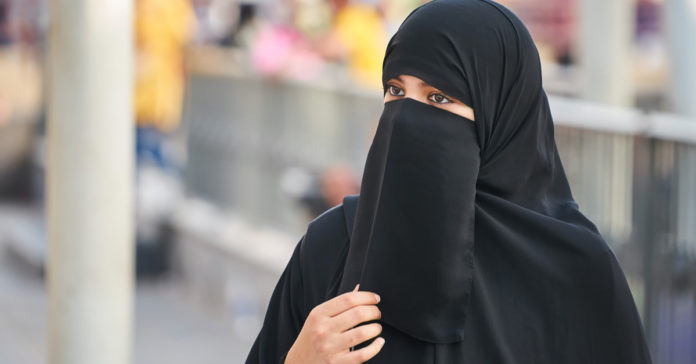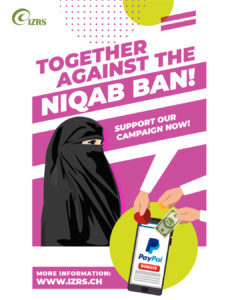Switzerland will hold a referendum on March 7 on whether to ban full facial coverings such as burqas and niqabs.
Under Switzerland’s system of direct democracy, any proposal to change the constitution goes to a popular vote if supporters raise more than 100,000 signatures.
The Swiss cantons of St Gallen and Ticino have already banned full-face coverings in regional votes, but the Swiss government said following through with a nationwide constitutional ban was a bad idea and would hurt tourism.
“Very few people in Switzerland wear a full facial covering,” the government said in a statement. “A nationwide ban would undermine the sovereignty of the cantons, damage tourism and be unhelpful for certain groups of women.”
Most women who wear full facial coverings are tourists and only spend a brief time in the country, the statement added.
The grouping behind the proposal – the “Egerkinger Komitee” that includes members of the right-wing Swiss People’s Party (SVP) – was also behind the 2009 move to ban minarets, which was approved by nearly 60 percent of voters.
Subscribe to our newsletter and stay updated on the latest news and updates from around the Muslim world!
Supporters of the 2009 proposal saw minarets as alien to Swiss traditions and values.
Muslims make up only about 5 percent of Switzerland’s 8.6 million people, official statistics show.
The Islamic Central Council of Switzerland said there has been a slow but steady penetration of Islamophobia into the centre of Swiss society in recent years. It has launched a campaign to counter the pro-ban propaganda, utilising social media platforms as well as the established media.
The Islamic Central Council of Switzerland said: “The campaign will serve to refute the proponents’ justifications for the ban which are that it is indispensable for the fight against terrorism as well as the equality and emancipation of women. But even more important, our campaign will expose that a niqab ban would fundamentally violate freedom of religion which is ‘to manifest religion or belief, in worship, teaching, practice and observance’ including the wearing of distinctive clothing such us head coverings.
“A ban – rather than protecting the rights of veiled Muslim women – might lead to a self-confinement of Swiss niqabis impeding their access to public services and education.”























